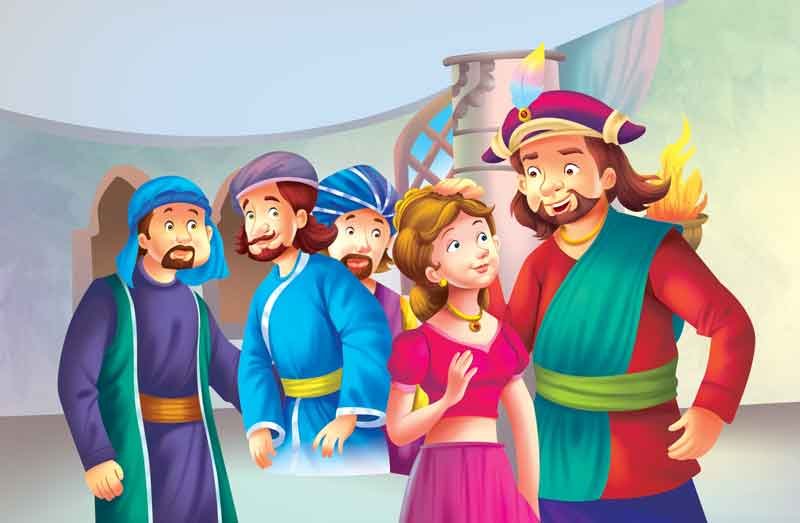Once upon a time, there was a great Sultan in India with three very worthy sons: Hussain, Ali and Ahmed. He also had a beautiful and accomplished niece, Nur-un-nihar, who had become an orphan when she was a child. He brought her up with great care and love.
All the princes were in love with Nur-un-nihar and wished to marry her, but the Sultan thought it wiser for her to be married to some other prince so that there might be no quarrel among his sons. However, they trusted their father’s judgement and asked him to decide which of them should marry her.
The Sultan created a plan to test them. They must travel to different countries and bring back the most extraordinary gifts for their father. Whoever found the rarest gift would win the hand of Nur-un-nihar.
The next morning, the princes were dressed as merchants and set off on their horses. Each one had a trusted officer disguised as a servant with him. They came to an inn outside the city gates and stayed there that night. The next morning, each one took a different path, promising to return to the same inn at the end of one year.
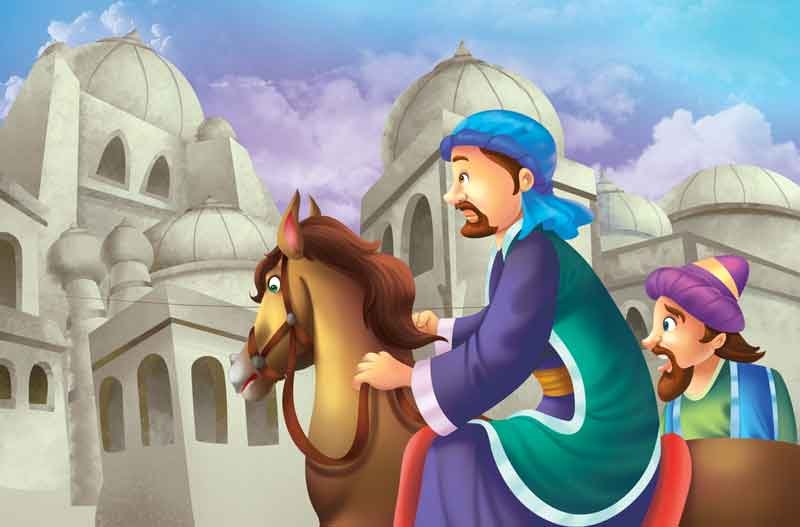
Prince Hussain and his companion travelled towards Bisnagar kingdom on the Indian coast, for Hussain had heard a lot about its wealth, strength and culture. They reached there after three months of travel over deserts and hills, past fields and forests.
He stayed at an inn and then set off to see the place. It was a fabulous place with the merchant’s quarters surrounding the king’s magnificent palace. The markets were full of rich merchandise: fine linen, silks, and brocades from many countries; jewellers and goldsmiths; rose sellers and traders.
Suddenly, Hussain heard a hawker selling an old piece of carpet. It was not very large nor was it very new or attractive. But the man was offering it for thirty purses! This made Hussain very curious.
“Why do you ask such a high price for this old carpet?” he asked the hawker.
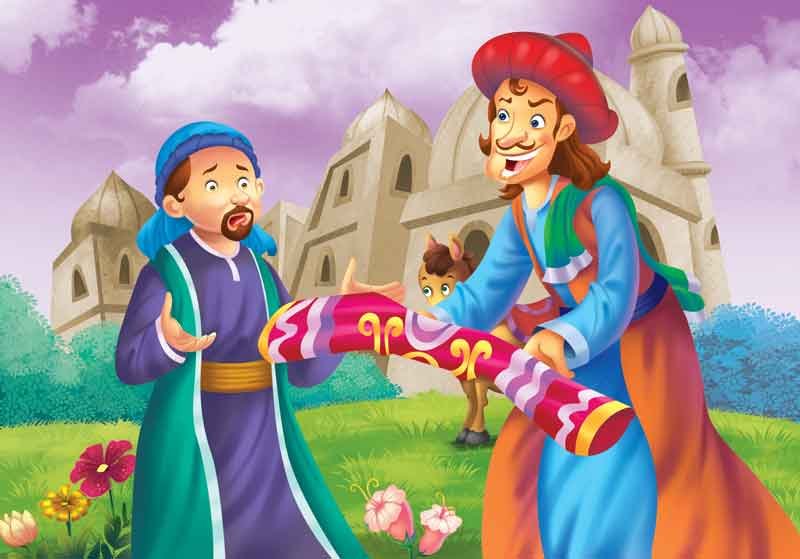
“I would ask for forty purses, sir!” replied the man.
This puzzled Hussain even more and wished to know what was special about the carpet.
“Sit on it, sir, and it will fly you to wherever you wish!” said the man and he invited Hussain to sit on it. They were transported to the inn immediately.
‘This is truly a rare gift for my father,’ thought Hussain. So, he paid forty purses and decided to wait later at the inn where his brothers would meet him. He had some time before he returned, so he enjoyed seeing the temples, the caparisoned elephants, the markets and the feasts of the city before the journey back home.
Prince Al
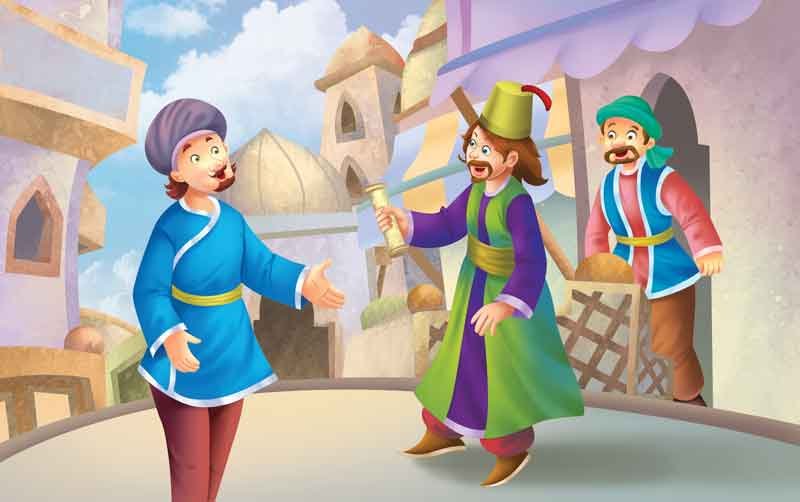
i had joined a caravan going to Persia, and soon arrived at its capital Shiraz. He made friends with many merchants and stayed with them, saying he was a jeweller from India.
Next morning, he went to that part of the town where merchants sold precious stones, gold, silverware, and the finest linen, silks and brocades. He saw a hawker crying out that he had an ivory tube for sale. It was about a foot long and an inch thick and the hawker was asking for thirty purses for it!
“Why does this cost so much?” Ali asked the hawker. He said it must be something special.
“It has glass at both ends of the tube, sir,” said the hawker, offering it to Ali to examine it, “If you look through the glass, you’ll see whatever you wish to behold.”
Ali looked through it and saw his father, the Sultan, in his court. Then he saw his beloved Nur-un-nihar laughing and talking with her companions. Ali was sure that the tube was an extraordinary article and so he bought it as a gift for his father.
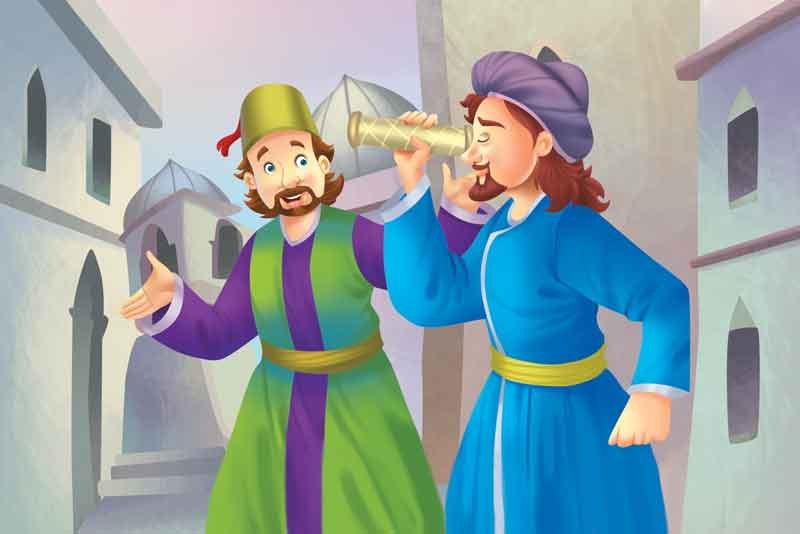
He stayed in Shiraz, admiring the city till the next caravan left for India. Then he returned to the inn to await his brothers.
Ahmed, the youngest prince, reached Samarkand and had much the same experiences as his brothers. But he found a hawker selling a fragrant artificial apple for thirty five purses.
“This apple can restore anyone to health, sir,” said the hawker, “Even if a person is dying, he will revive merely by smelling this!”
Prince Ahmed bought the apple and, before returning to his father’s kingdom, he enjoyed seeing all the great sights of Samarkand: the valley of Sogda, the palaces and gardens and fields. Then he joined his brothers at the inn outside the city gates of his father’s kingdom.

The brothers embraced one another and talked about the rare gifts they had found. They showed the wonders of their gifts to one another. However, when Hussain looked through the ivory tube, they saw he looked dismayed.
The brothers asked him what he had seen. He said he had seen that Nur-un-nihar lay dying. The brothers quickly sat on the carpet and flew to the palace. There Ahmed took the fragrant apple to the princess and made her smell it.
Instantly, she recovered her health. The Princes then went and bowed to their father and showed him the extraordinary gifts they had got. It was difficult for the Sultan to decide which had been the most effective in saving Nur-un-nihar.
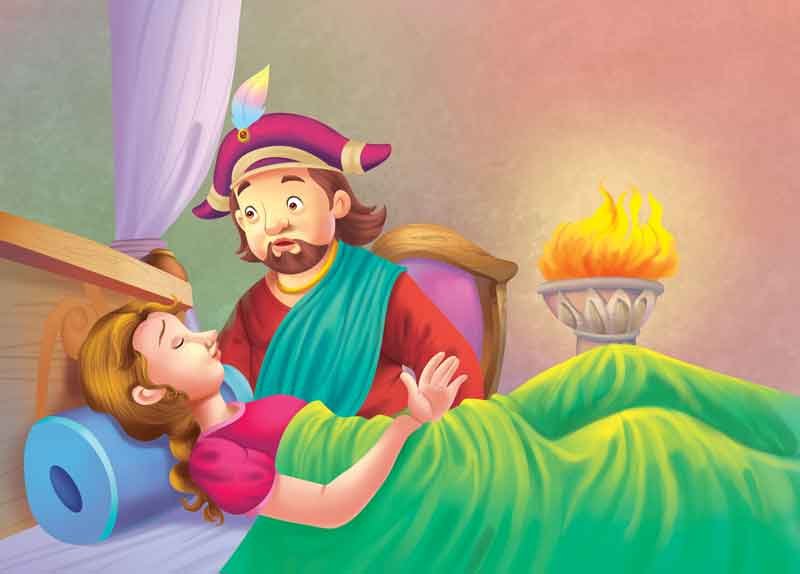
It was through Ali’s ivory tube that they saw she was ill. Hussain’s flying carpet brought them instantly to her and Ahmed’s apple revived her. Without any one of them it would have been impossible to cure her! So the Sultan said they would have to find some other way to decide who would win the princess!
He asked the princes to take their bows and arrows to a plain outside the city. A contest would be held there to see them shoot their arrows. The one who shot his arrow the farthest would win Nur-un-nihar’s hand in marriage.
Hussain’s arrow went quite a distance, but Ali’s arrow went even further. However, there was no sign of Ahmed’s arrow at all after he had shot it. The Sultan decided that since Ahmed’s arrow was not found he could not be considered the winner. He gave the hand of Princess Nur-un-nihar in marriage to Prince Ali.
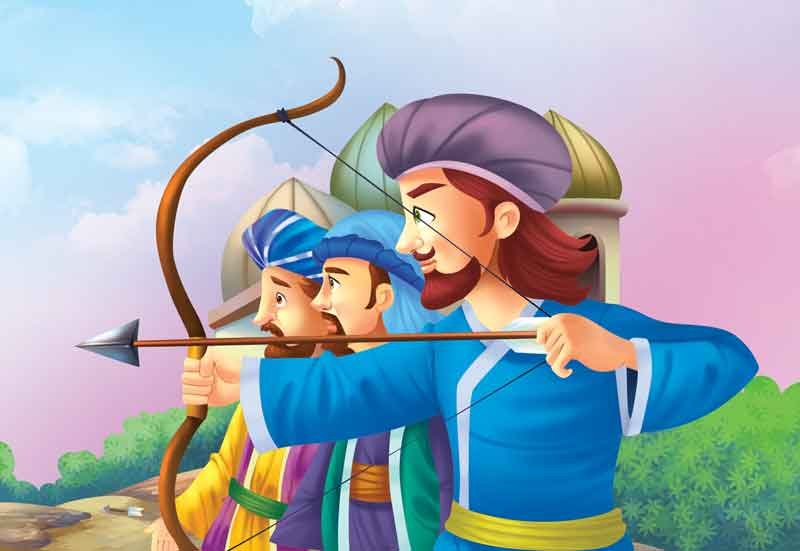
The three Princes accepted the Sultan’s decision. But Hussain was so unhappy that he did not attend the wedding. Instead he left the city and became the disciple of a saint for the rest of his life. Prince Ahmed too did not stay for long in the kingdom but went off to look for his arrow. Prince Ali and his wife lived there happily always.

